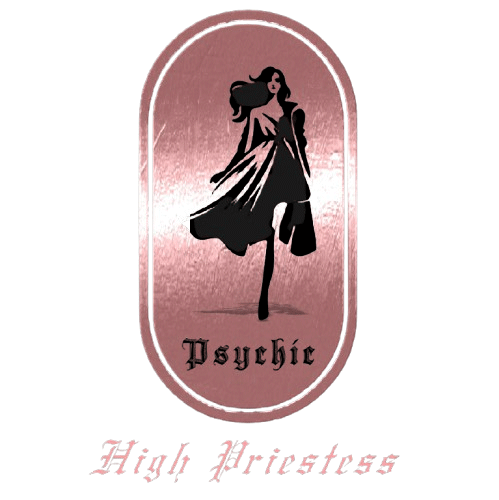Many couples question whether they should seek therapy or counseling when their relationships find difficult times. Are they like one another? Couples counseling and treatment have different goals, even though they are sometimes used synonymously. Knowing the differences will enable you to decide which direction best fits the demands of your relationship. The correct help can make all the difference, whether your goals are healing after betrayal or skills to enhance communication skills. Your partnership is a holy space, hence making investments in its expansion is a great act of love. This book will help you choose which of couples therapy and counseling, best fits your spiritual and emotional path by dissecting their goals, approaches, results, and differences.
Understanding The Basics
Usually short-term and solution-oriented, couples’ counseling comes from it guides couples with daily challenges, including relationship problems, parental difficulties, or communication breakdowns. For couples looking for tools, clarity, and better connection, it’s fantastic. Couples therapy, on the other hand, probes further. It reveals underlying reasons such as trauma, connection scars, or unresolved animosity. For profound emotional healing or long-standing, difficult problems, therapy is best.
Goals: Surface Solutions Vs Deep Healing
Counseling’s main objective is pragmatic change: improved communication, less conflict, greater understanding. It’s about handling disagreement and raising team performance. Therapist work seeks to mend more profound emotional scars.
It looks at why couples react the way they do, investigates unconscious patterns, and frequently includes pair dynamic integration of individual trauma therapy. It is transforming, not only correcting.
When To Choose Couples Counseling
When you feel emotionally attached yet are under daily stress, choose counseling. Perhaps your talks cause misinterpretation or one of you needs additional help with planning the future or parenting. Counseling can provide you tools, organization, and clarity, without delving into your emotional past, should your problems be situational or recent.
When To Choose Couples Therapy
If prior trauma, betrayal, mistrust, or cycles of emotional disengagement weigh down your relationship, choose treatment. Therapy is the place to investigate why you find yourself often trapped, ignored, or emotionally triggered. It’s not only about communication; it’s about healing the reason behind the breakdown, usually stemming from prior events or childhood wounds.
The Role Of The Practitioner
Many times, couples counselors serve as coaches and mediators. They mentor communication skills, direct dialogues, and use fairness and structure to help settle disputes. Therapists, especially those with trauma or clinical backgrounds, take on more active roles. They might look at familial relationships, emotional history, or unsolved inner difficulties that are compromising the partnership. Their method can be more thorough and all-encompassing.
Techniques Used In Each
Therapies could call for Somatic Experiencing, Internal Family Systems (IFS), or Emotionally Focused Therapy (EFT). These techniques probe trauma, attachment styles, body memory, and emotions. Therapy sometimes calls for inner child healing, shadow work, or self-inquiry.
Frequency And Duration
Usually covering a shorter period, between six and twelve sessions, Couples Counseling is often employed for temporary help; it is goal-driven and periodic.
Couples therapy has more open ends. The extent of the problems will determine how long it lasts, from many months to a year or more. It offers a continuous area for layered investigation, healing, and progressive development over the years.
The Spiritual Dimension
Couples counseling is cognitive; it deals with ideas, habits, and communication styles. More surface-level, pragmatic, and action-oriented it is. Couples therapy can combine the spiritual and emotional. Soul work, karmic patterns, generational trauma, and even spiritual connection methods may all be part of it. Couples on a purposeful road of discovery seeking healing that impacts both psyche and soul should find it perfect.
The Readiness Factor
Counseling is sufficient if you both have relative stability but find your handling of stress or conflicts frustrating. You are ready to coordinate efforts to enhance daily routines.
Therapy is more appropriate if one or both of you shut down during disagreement, have great emotional suffering, or dread vulnerability. Being ready for treatment calls for more emotional honesty, openness, and patient with the healing process.
Impact On The Relationship
Improved teamwork, more seamless interactions, and greater respect typically follow from counseling. It helps to strengthen a connection already with a strong basis.
But therapy can totally change the basis of the relationship. It creates emotional connection, vulnerability, and empathy. Many couples claim treatment helped them “find each other again”, sometimes more profoundly than ever before.
Can You Do Both?
Right. Many couples actually begin their journey into therapy for deeper treatment after first consulting to help with communication stabilization. Some even alternate both. The most important thing is selecting the correct modality for your current connection and being ready to change as your needs change. Love is an adventure rather than a fix-all solution.
Also See: Attract Love into your Life!
How To Choose The Right Support
Ask yourselves: Are we emotionally wounded, or do we struggle with communication? Do we want instruments to control conflict, or do we want to repair the underlying causes? Think also about your degree of emotional vulnerability comfort. The responses to these inquiries will guide you to the healing modality your relationship is really ready for.
Conclusion!
Your relationship is a holy container, a mirror reflecting your shared and personal development. Whether you go on treatment for deeper healing or counseling for clarity, the goal behind it counts most. Asking for help is not embarrassing, actually, among the most loving things you can do for one another and yourself.
For tools, resources, and divine direction on conscious partnerships, shadow work, and inner healing, visit High Priestess. Love starts inside and grows best when fed knowledge.
FAQs
What’s the main difference between couples counseling and couples therapy?
Couples counselling concentrates on temporary, pragmatic help, such as enhancing communication, conflict management, or negotiating life transitions. For daily relationship stresses, it’s fantastic. But therapy addresses more deeply. It looks at emotional scars, trauma, and unconscious behaviours influencing the relationship. Couples experiencing more intense emotional distance or repeated destructive cycles would find therapy most helpful.
When should a couple go for therapy instead of counseling?
Therapy is the preferable option if your relationship suffers from unresolved prior trauma, frequent emotional shut-off, betrayal, or long-standing resentment. Therapy clarifies why those problems keep coming up and guides you towards group healing. For lighter, present-day issues unrelated to profound emotional scars, counselling is more appropriate.
Is it possible to do counseling and therapy at the same time?
Exactly. Many couples begin their journey into therapy for deeper healing after first consulting to help stabilise communication. Some even rotate depending on their changing needs between both. The secret is to remain open, evaluate your spiritual and emotional needs, and modify the kind of help you require at your present stage of development.



